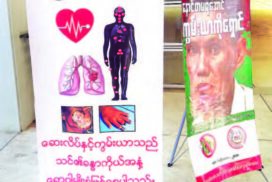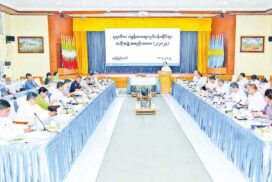Health diplomacy is a form of diplomacy that focuses on protecting the health and well-being of populations across national borders. It involves using health-related issues to build relationships, foster cooperation, and promote peace and stability between nations. Health diplomacy is a field of diplomacy that brings together the priorities of global health and foreign affairs. It brings together a variety of participants in areas that affect public health all around the globe.
Health diplomacy is the use of international relations and diplomacy to solve global health problems, improve public health outcomes, and promote health equity. Health diplomacy is important because it recognizes global health problems, like infectious diseases, non-communicable diseases and access to health care.
As globalization progresses, it is becoming clear that matters which were once confined to national policy are now issues of global impact and concern. Pandemics, newly emerging communicable diseases and threats of bioterrorism are now clearly understood as direct threats to national and global security. The strategic relevance of health has changed, as health has become an integral part of economic, geopolitical, security, and social justice agendas, including human rights and domestic-foreign policy, among other emerging agendas. Policies in the areas outside of the health sector, such as trade and economic development, now need to be complemented by those in the areas of environment and health.
In a changing global context, health diplomacy represents an important forum for negotiations on global policy issues that shape and influence the global environment for health. It brings together a wide range of actors in areas that affect public health. The main goals of health diplomacy are (1) better health security and population health; (2) improved relations between states and a commitment of a wide range of actors to work together to improve health; and (3) achievement of outcomes that are reasoned fair and support the goals of reducing poverty and increasing equity.
Health diplomacy becomes an essential tool in promoting the well-being of populations and advancing national interests. The followings are some key aspects highlighting the importance of health diplomacy from a national development perspective: –
Global Health Security: Health diplomacy facilitates cooperation between nations to address global health threats like pandemics, infectious diseases, and bioterrorism. By collaborating on surveillance, information sharing, and coordinated responses, countries can collectively prevent, detect, and respond to health emergencies, safeguarding their populations and economies.
Disease Control, Elimination and Eradication: Health diplomacy supports joint efforts to control and eliminate diseases that cross borders, such as malaria, HIV/AIDS, and tuberculosis. Collaborative initiatives can improve access to medicines, vaccines, and healthcare resources, leading to healthier populations and increased productivity.
Economic Impact: Healthy populations are more productive and economically active. By investing in health diplomacy and promoting better healthcare practices, countries can reduce the burden of illnesses and increase the workforce’s capacity, leading to enhanced economic development and prosperity.
Soft Power and Diplomatic Relations: Engaging in health diplomacy can enhance a nation’s soft power and improve diplomatic relations with other countries. When a nation contributes to global health initiatives, it can build goodwill and foster positive perceptions among other nations, thereby strengthening its diplomatic relations.
Research and Innovation: Health diplomacy encourages collaboration in research and development, allowing nations to share knowledge, technology, and best practices. Such partnerships can lead to breakthroughs in medical treatments, healthcare delivery, and disease prevention, benefiting both local populations and the international community.
Health and Sustainable Development Goals (SDGs): Health is an integral part of sustainable development. By prioritizing health diplomacy, countries can work together to achieve the health-related SDGs, ensuring equitable access to healthcare, clean water, sanitation, and nutrition for all, contributing to overall human development.
Health Tourism and Trade: Improving a nation’s healthcare system through health diplomacy can attract health tourists, boosting the economy through medical tourism and generating revenue that can be reinvested in the healthcare sector.
Climate Change and Environmental Health: Health diplomacy can address environmental health challenges arising from climate change, such as increased vector-borne diseases and natural disasters. Collaborative efforts can lead to mitigating the impact of climate change on health and promoting sustainable practices.
Disaster Response: During crises and disasters, health diplomacy enables the coordination of humanitarian support and response efforts, ensuring timely support to affected populations and strengthening international partnerships in disaster management.
Capacity Building and Knowledge Exchange: Health diplomacy allows countries to learn from each other’s successes and challenges, fostering capacity building and knowledge exchange in healthcare systems, public health policies, and disease management.
Briefly, Health Diplomacy is a strategic and integral component of the National Development Perspective. By collaborating with other nations to address health challenges, share resources, and promote global well-being, we can achieve sustainable development, strengthen diplomatic relations, and create a healthier and more prosperous life for our citizens.
References
-www.diplomacy.edu
-www.emro.who.int














